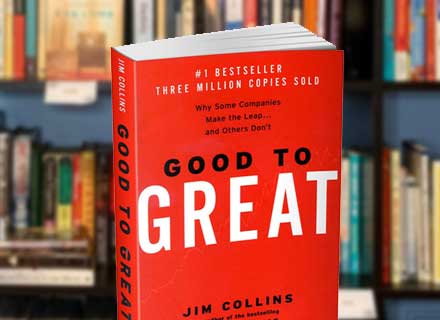Being an entrepreneur is not everyone’s cup of tea. From securing the necessary capital through funding to scouting and recruiting the right people, who will help your business shine and grow, challenges grow multi-fold from the moment one decides to have his/her own company/venture. However, the biggest challenge the person can face is an internal struggle, the constant self-doubt before taking any crucial business call.
Self-doubt can be a budding entrepreneur’s worst enemy, if left unchecked. How to combat this? Take inspiration from the best in business. Here are the 15 books an aspiring entrepreneur should read before and after jumping into the ocean of economic opportunities.
The Lean Startup – Eric Ries
This book introduces the concept of lean startup methodology, which focuses on rapid iteration, experimentation, and validated learning. It provides practical insights on how to build and scale successful startups by minimizing waste and continuously adapting to customer feedback.
Zero To One – Peter Thiel
In this book, Thiel, a successful entrepreneur and investor, shares his insights on building groundbreaking companies. He emphasizes the importance of creating unique and innovative solutions rather than incremental improvements. Thiel offers valuable advice on how to think about business, competition, and the future.
The Innovator’s Dilemma – Clayton M. Christensen
Christensen explores the concept of disruptive innovation and its impact on established companies. He explains why successful businesses often fail to adapt to disruptive technologies and provides strategies to navigate these challenges. This book helps entrepreneurs understand the dynamics of innovation and seize opportunities in evolving markets.
Good To Great – Jim Collins
Collins and his research team studied companies that made the transition from being average to extraordinary performers. The book identifies key factors and principles that differentiate successful businesses from their competitors. It offers valuable insights into leadership, strategic decision-making, and building sustainable organizations.
Thinking, Fast and Slow – Daniel Kahneman
Kahneman, a Nobel laureate in economics, explores the two systems that drive human thinking: the intuitive and emotional “fast” system and the deliberate and logical “slow” system. The book examines cognitive biases and their impact on decision-making, helping entrepreneurs make more informed choices and understand consumer behaviour.
The 7 Habits Of Highly Effective People – Stephen R. Covey
Covey presents a holistic approach to personal and professional effectiveness. He outlines seven habits that help individuals become more productive, achieve their goals, and build strong relationships. The book emphasizes the importance of integrity, prioritization, and proactive behaviour.
Influence: The Psychology Of Persuasion – Robert B. Cialdini
Cialdini explores the principles of persuasion and how they can be used ethically in business and everyday life. He explains various psychological triggers that influence human behaviour, such as reciprocity, social proof, and scarcity. Entrepreneurs can learn to understand and leverage these principles to enhance their marketing, sales, and negotiation skills.
The E-Myth Revisited – Michael E. Gerber
Gerber addresses the common pitfalls faced by small business owners and provides insights on how to build scalable and successful enterprises. He emphasizes the importance of systematizing processes, developing strong organizational structures, and working on the business rather than just in the business.
Start With Why – Simon Sinek
Sinek introduces the concept of the Golden Circle, which focuses on the “why” behind successful businesses and their ability to inspire others. The book explores the importance of purpose, vision, and values in building a loyal customer base and a motivated team.
The Art Of War – Sun Tzu
Although an ancient military treatise, “The Art of War” offers valuable lessons applicable to business strategy. It provides insights into leadership, competition, and strategic thinking. Entrepreneurs can learn about tactics, manoeuvring, and adapting to changing circumstances.
Made To Stick – Chip Heath & Dan Heath
This book explores the traits that make ideas memorable and impactful. The authors present a framework for creating messages that stick with audiences, using real-life examples and practical techniques. Entrepreneurs can learn to communicate their vision effectively and make their ideas resonate with customers and stakeholders.
The Hard Thing About Hard Things – Ben Horowitz
Horowitz, a successful entrepreneur and venture capitalist, shares his experiences and insights on navigating the challenges of running a startup. He delves into difficult decisions, managing teams, dealing with adversity, and the emotional toll of entrepreneurship. The book provides practical advice for entrepreneurs facing tough situations.
The Four Hour Workweek – Timothy Ferriss
Ferriss challenges the traditional notion of work and offers a blueprint for lifestyle design and productivity. He shares strategies for outsourcing tasks, automating businesses, and maximizing efficiency. The book encourages entrepreneurs to focus on meaningful work and create more freedom in their lives.
Purple Cow: Transform Your Business By Being Remarkable – Seth Godin
Godin emphasizes the importance of standing out in a crowded marketplace. He advocates for creating remarkable products, services, and marketing that captivate customers’ attention. The book urges entrepreneurs to embrace innovation and differentiation to build successful and memorable businesses.
The Power Of Habit – Charles Duhigg
Duhigg explores the science behind habits and their influence on individual and organizational behaviour. He reveals how habits shape our lives and offers insights into how to create and change habits effectively. Entrepreneurs can learn to harness the power of habits to drive productivity, improve decision-making, and foster a culture of success.

